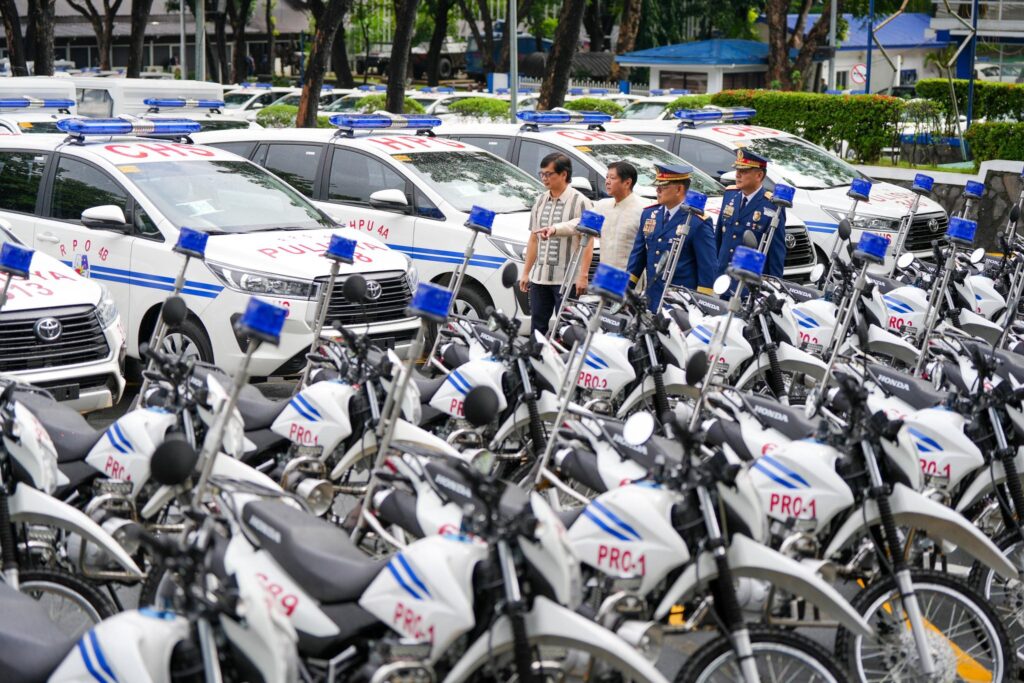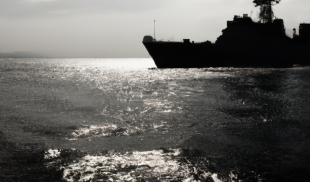[ad_1]
The previous month has seen the livid return of Rodrigo Duterte, who was summoned by the Philippine Congress to reply for the brutal excesses of his “drug battle.” Throughout two subcommittee hearings, the primary by the Senate after which by the Home of Representatives, lawmakers pressed Duterte on the estimated 30,000 abstract executions he inspired, oversaw, and allegedly financed as president.
The subcommittees, shaped in August 2024, reply to the insistence of now-President Ferdinand “Bongbong” Marcos Jr. that home establishments are able to investigating and prosecuting authorities misconduct. The judiciary and police, Marcos harassed, are “strong, wholesome, and lively.” However the Philippines has been below the darkening cloud of the Worldwide Legal Court docket (ICC), the supranational tribunal charged with making an attempt essentially the most grievous crimes. Final 12 months, the ICC greenlit a probe into potential crimes towards humanity dedicated as a part of the drug battle, regardless of Duterte’s withdrawing the Philippines from the Court docket in 2018. Since his 2022 election, Marcos has forged the ICC as a menace to nationwide sovereignty, refusing to recognise its jurisdiction, not to mention support its investigation.
At first look, Marcos’ religion in home establishments appears well-placed. The mere existence of the current congressional hearings suggests an ready and earnest authorities, one which calls for full solutions and makes no exception for rank or standing. Earlier than Duterte was known as to look, the hearings had already collected hours of testimony from native officers, senior cops, and victims’ households, all directing blame on the former president. Following Duterte’s look, Home Committee Chairperson Ace Barbers claimed he now had ample proof to creator a report on whether or not state officers ordered and rewarded killings. Quickly after, the Division of Justice introduced it could file prison prices towards Duterte, ought to its overview of the brand new proof and testimonies warrant them.
However it could be misplaced to imagine that justice within the Philippines is so clear-cut and promising— certainly, it could be the exception, not the rule, if this have been so. Due to each lack of political muscle and authorized shortcomings, Philippine establishments are less than the duty of investigating and prosecuting crimes towards humanity. Because of this, the previous president might nicely stroll free—at the same time as a hero—some time longer.
Duterte’s political shadow
Two years on since stepping down as president, Duterte nonetheless wields appreciable political clout. As a pacesetter who commanded sweeping management of Congress and whose time period maintained unusually excessive public favour, he has forged one of many longest political shadows of any Philippine ex-president.
Duterte’s affect is maybe felt no clearer than within the nation’s present executives. His daughter, Sara, is the vice chairman, whose 2022 run with Marcos carried the coveted Bisaya vote and in the end received three-fifths of the citizens. Within the Philippines, the president and vice chairman are elected on separate tickets, however the Marcos–Duterte camps ran as a de facto alliance below the “Uniteam” marketing campaign model. However their partnership turned more and more bitter, as Sara’s energy inside it diminished within the two years since their inauguration.
Taking after her father, she has bristled repeatedly towards Marcos, fashioning herself as a sufferer of conspiracy and even because the “actual” opposition. The president, at his political expense, has principally remained above the fray, discovering it both beneath his dignity, or past his skills, to make use of the bully pulpit in retaliation. On this means, the Dutertes have each insisted and been allowed to stay the loudest voice in Philippine politics, regardless of not presiding at its helm. And may in style sentiment in the direction of them keep heat, they’re forecasted to return to the presidency in 2028.
The current drug battle hearings present that the ex-president nonetheless haunts Congress, too. Within the Senate, Duterte’s allies fought efficiently for him to ship the primary remarks, regardless of victims’ households already slated to take action. “When you have a look at the previous president, he’s already so sleepy,” insisted Senator Bato Dela Rosa, who was the architect of the drug battle as Philippine Nationwide Police (PNP) Chief below Duterte. “With all due respect, we all know he’s previous. For humanitarian consideration,” he mentioned.
The listening to quickly misplaced extra gravitas. Dela Rosa badgered a priest, who spoke of his efforts to help victims’ households, as Duterte allies recalled the president’s achievements. Duterte himself swore and interrupted to no consequence, even inviting a senator to affix him in hell. Laughter and cheers, equally unpunished, erupted from his lackeys within the gallery. The Home, against this, was not as compliant to Duterte. But the ex-president nonetheless overtly rebelled, gesturing to punch one former lawmaker and almost hurling his microphone at one other. Refusing to scold Duterte, the committee known as for quite a few one-minute suspensions to permit him to chill off.
Even when these hearings unveil new truths concerning the drug battle, their lack of seriousness has made it clear that they fall brief as significant levers of accountability. As a substitute, they return to the ex-president management of the nationwide stage, from which he defends mass homicide and humiliates these opposed. Possible, Duterte’s efficiency of grievance hardens his picture as a fighter, ever dealing with down conniving trapos (conventional politicians) who search now to upset his legacy. It’s no marvel Congress has little urge for food to self-discipline him: most are both nonetheless certain by him or nonetheless worry him. With midterm elections in Could 2025 set to swell the variety of Duterte allies in Congress, it’s potential future hearings will much more successfully shut ranks round him.
These political headwinds appear to have made for an indecisive President Marcos. It could clarify why he has not ordered an finish to the drug battle, regardless of specific commitments to rehabilitating drug customers. In response to Dahas, a mission of the Third World Research Heart on the College of the Philippines, there have been 848 experiences of drug-related killings below Marcos as of 23 November 2024. Nor has Marcos cracked down on the PNP’s unlawful refusal to launch drug battle information to the Fee on Human Rights, a constitutional physique that has been saved at nighttime on the problem for eight years. And maybe most grave of all, the president has not supplied any protections to witnesses and victims’ households, who’re hesitant to help and pursue instances in native courts after repeated harassment from police.
In lieu of substantive coverage, Marcos has obsessed over political window dressing. In Could 2024 he convened in Could a human rights safety “tremendous physique” and in early November launched a drug battle activity pressure, which he boasted ought to keep off the ICC. Philippine civil society has dismissed such efforts as “toothless” and insincere.

President Ferdinand ‘Bongbong’ Marcos Jr visits the Philippine Nationwide Police headquarters at Camp Crame, Quezon Metropolis, August 2024 (Photograph: Bongbong Marcos on Fb)
Inadequate authorized requirements
Marcos’ feeble efforts means the ICC has resumed its monitoring of the Philippines. Ought to the federal government nonetheless fail to make significant headway—proving “unwilling or unable to genuinely perform the investigation and prosecute the perpetrators”—the Court docket will train jurisdiction and steer the proceedings as a substitute. That is what the ICC calls “complementarity”, below which the Court docket solely pursues instances to the extent that they intend to enrich, slightly than duplicate or supersede, home authorized processes.
Whereas Philippine authorities have been investigating and prosecuting drug battle killings, they in the end fail to satisfy the “identical particular person, identical conduct” threshold the ICC’s complementarity precept applies. Genuinely finishing up investigations and prosecutions signifies that proceedings attain the distinctive gravity of worldwide crime, prosecuting essentially the most accountable. Which means the drug battle’s chief implementers, not simply low-level cops, needs to be introduced earlier than Philippine courts.
Moreover, complementarity’s check is met when the identical particular person recognized within the ICC warrant of arrest is prosecuted domestically for a similar conduct or sample of acts specified by the indictment. To date, the instances touted by the Philippine authorities as examples of strong native proceedings haven’t captured the core evil of what the ICC phrases “crime towards humanity of homicide”—systematic or widespread state assaults directed towards civilians. Native prosecutions for homicide, with some even downgraded to murder, or administrative proceedings that strip cops of standing and advantages barely scratch the floor of what constitutes crimes towards humanity.
Associated

Ayungin Shoal and the spectre of casual worldwide regulation
What an alleged gentleman’s settlement tells us about China’s imaginative and prescient of worldwide regulation
And even when the Philippine prison justice system have been to cost the suitable perpetrators and file the suitable instances, it could nonetheless be ill-equipped to prosecute worldwide crime. A cost of crimes towards humanity could also be obtainable below Philippine regulation, however such a provision has been dormant. Republic Act No. 9851’s nomenclature of the offence— as “different crimes towards humanity”—displays precisely the marginal remedy of this crime.
With reminiscences fraying, witness intimidation ongoing, and proof being misplaced to time and human incompetence, Philippine establishments can not for now match the ICC’s rigor and experience. For example, the ICC prosecutor’s workplace carried out a preliminary examination earlier than the Court docket even authorised an investigation in 2021. The ICC can also be systematically combing by means of proof and testimonies from victims’ households. And what of Philippine investigations? They’ve confirmed solely piecemeal and lax.
So what’s in it for the Philippines if it cooperates with the ICC? By design, there’s room for participation by home authorities throughout the Court docket’s proceedings. Maybe then the federal government’s focus needs to be its competent engagement at The Hague, slightly than dying on the hill of sovereign jurisdiction.
Turning to the ICC
Because the Marcos–Duterte infighting intensifies by the week, it’s tempting to think about that the sitting president will succumb to political incentives to lastly welcome the ICC, initiating real accountability and sounding the dying knell for the Dutertes. However these odds are unlikely. Opening up the Philippines to ICC scrutiny would invite a flurry of investigations into extra state breaches of worldwide regulation. Acts of torture, arbitrary arrests, red-tagging, enforced disappearances, and battle crimes: these have all quietly continued below the present authorities. Philippine ignominy within the eyes of the world would little question embarrass Marcos.
But households of drug battle victims don’t bear such politics in thoughts: their focus has been on rescuing the dignity of their slain family members—and so they see the chance now being squandered.
As Duterte lambasted Home lawmakers within the listening to, Mary Ann Domingo—whose husband and son have been dragged from their dwelling and gunned down by police—couldn’t assist however really feel the improbability of justice. Domingo was considered one of three widows who testified simply toes from Duterte, and her case is probably going the final to obtain a neighborhood court docket conviction.
“Is there actually justice?” she lamented to Rappler. “I used to be speculated to be completely happy as a result of I confronted [Duterte], I used to be speculated to be completely happy as a result of he can lastly come clean with what he did, however on the finish of it, we nonetheless felt defeated.”
Like Domingo, victims’ households pin their hopes on the ICC to lastly give them justice—to arrest the drug battle’s proponents or, on the very least, to recognise the breadth of human loss. That religion is well-placed: in The Hague, victims are granted a full account of their standing and views all through adjudication, from the affirmation of prices to trial and sentencing. Within the Philippines, victims’ voices and tales are shortly drowned out—by unhelpful prosecutors, bullying police, and technical guidelines that protect perpetrators from dangerous publicity. In The Hague, proceedings may also kindle nationwide therapeutic, encouraging Filipinos who cheered for the homicide of their fellow residents some reflection of their brutality. Within the Philippines, such reckoning is being actively foreclosed by the complicit powers that stay.
[ad_2]
Source link










